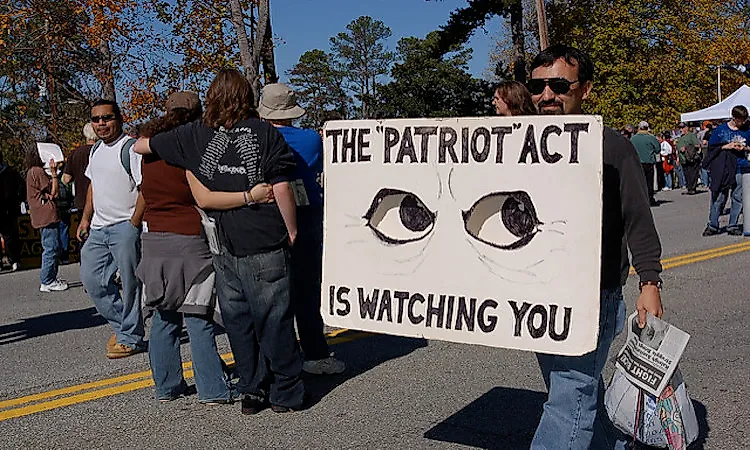What Is The Patriot Act?

What Is The Patriot Act?
The US Patriot Act stands for the “Uniting and Strengthening America by Providing Appropriate Tools Required to Intercept and Obstruct Terrorism” Act. This act became law on October 26, 2001, under the presidency of George W. Bush. The purpose behind this law was to provide enhanced authority to all levels of law enforcement officials and intelligence agencies to prevent security threats, such as terrorism. This expansion included increased surveillance of private communications. It was introduced to Congress shortly after the September 11th terrorist attacks on the country.
Key Pieces Of The Patriot Act
The Patriot Act consists of 10 titles, which each address specific topics. To fight terrorism, Congress and the President approved increased federal funding for the FBI Terrorist Screening Center and opened a fund for counter-terrorist activities in Title I. It also gave the Attorney General power to request military assistance in cases of suspected weapons of mass destruction.
In addition, the Act gives authority to government agencies to gather foreign intelligence information on US citizens and noncitizens. Wiretapping and surveillance were both expanded as well, giving district court judges the power to order surveillance and search warrants for suspected terrorism. It went on to strengthen banking rules against money laundering, increased the number of border patrol agents, and augmented the Immigration and Naturalization Service budget by $50 million.
One of the most controversial pieces of the Patriot Act is within Title V, which expands subpoenaing rights to Field Agents of several governmental organizations. Previously, this right was held only by Deputy Directors. No probable cause or judge’s approval is needed to subpoena information. The party who receives the subpoena may not inform the individual who is being investigated. It also broadens the definition of terrorism and domestic terrorism to include more criminal acts.
Updates To The Patriot Act
The Patriot Act has been updated several times since its inception. The first time was in May of 2011 when President Obama signed a bill to extend three key pieces of the Act for four years. These extensions included: wiretaps, business record searches, and surveillance of individuals not involved with terrorist groups but who are suspected independent terrorists.
On June 1, 2015, several provisions of the Patriot Act expired. However, Congress enacted the USA Freedom Act the very next day. This new Act renewed Obama’s previous extension and effectively prohibited the National Security Agency (NSA) from collecting mass amounts of phone data information. This information will now be stored by individual phone companies. The NSA is required to have permission from a federal judge in order to request files on a specific person from the phone companies.
Criticisms Of The Patriot Act
Since the Patriot Act was first enacted, it has been met with heavy criticism from numerous parties, including the general public. One of the biggest criticisms is that Act gives too much power to law enforcement. Critics believe that the surveillance portion of the law can be used against individuals who are not actually terrorists, like political protesters. Another widely held belief, even among many members of Congress, is that the Act does not protect civil liberties. In at least one investigation, the Inspector General of the Justice Department found that misuse of the Patriot Act powers was common in FBI cases, particularly those cases that did not involve suspected terrorists.











